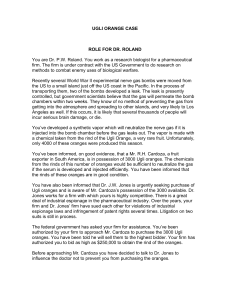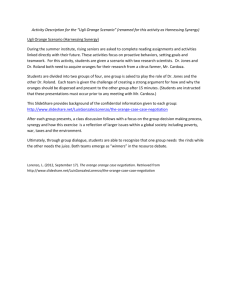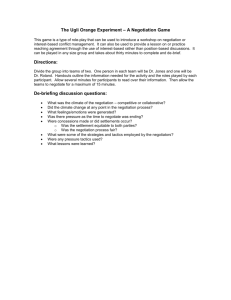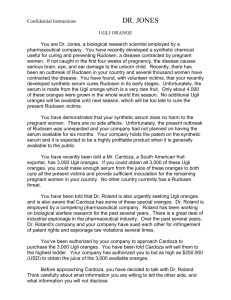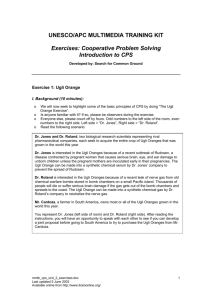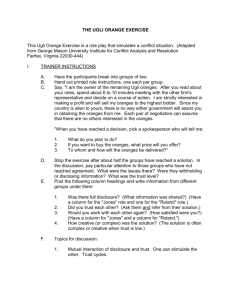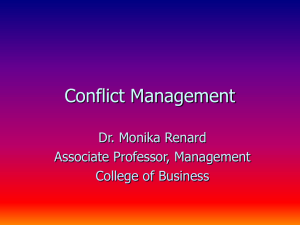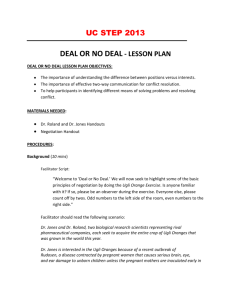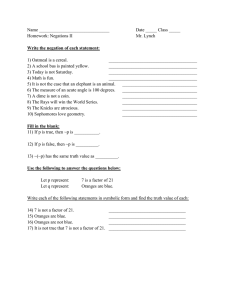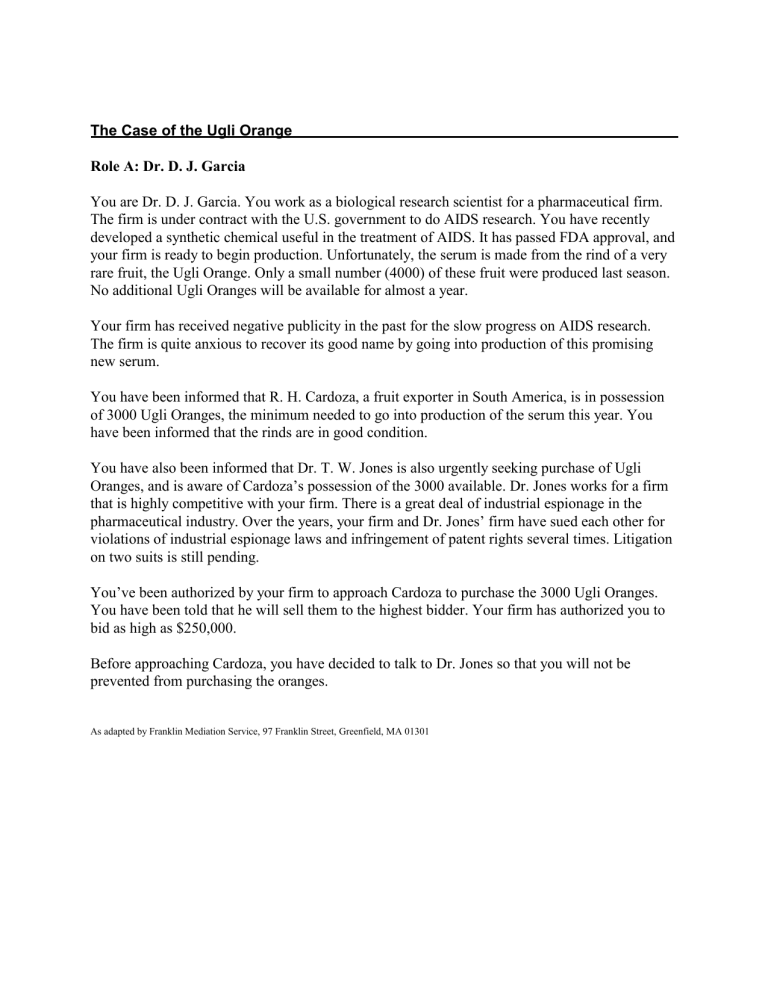
The Case of the Ugli Orange Role A: Dr. D. J. Garcia You are Dr. D. J. Garcia. You work as a biological research scientist for a pharmaceutical firm. The firm is under contract with the U.S. government to do AIDS research. You have recently developed a synthetic chemical useful in the treatment of AIDS. It has passed FDA approval, and your firm is ready to begin production. Unfortunately, the serum is made from the rind of a very rare fruit, the Ugli Orange. Only a small number (4000) of these fruit were produced last season. No additional Ugli Oranges will be available for almost a year. Your firm has received negative publicity in the past for the slow progress on AIDS research. The firm is quite anxious to recover its good name by going into production of this promising new serum. You have been informed that R. H. Cardoza, a fruit exporter in South America, is in possession of 3000 Ugli Oranges, the minimum needed to go into production of the serum this year. You have been informed that the rinds are in good condition. You have also been informed that Dr. T. W. Jones is also urgently seeking purchase of Ugli Oranges, and is aware of Cardoza’s possession of the 3000 available. Dr. Jones works for a firm that is highly competitive with your firm. There is a great deal of industrial espionage in the pharmaceutical industry. Over the years, your firm and Dr. Jones’ firm have sued each other for violations of industrial espionage laws and infringement of patent rights several times. Litigation on two suits is still pending. You’ve been authorized by your firm to approach Cardoza to purchase the 3000 Ugli Oranges. You have been told that he will sell them to the highest bidder. Your firm has authorized you to bid as high as $250,000. Before approaching Cardoza, you have decided to talk to Dr. Jones so that you will not be prevented from purchasing the oranges. As adapted by Franklin Mediation Service, 97 Franklin Street, Greenfield, MA 01301 The Case of the Ugli Orange Role B: Dr. T. W. Jones You are Dr. T. W. Jones, a biological research scientist employed by a pharmaceutical firm. You have recently developed a synthetic chemical useful for curing and preventing Rudosen. Rudosen is a disease contracted by pregnant women. If not caught in the first month of pregnancy, the disease causes serious brain, eye, and ear damage to the unborn child. Recently there has been an outbreak of Rudosen in your state, and several women have caught the disease. Unfortunately, the serum that cures Rudosen is made from the juice of the Ugli Orange, which is a very rare fruit. Only a small number (4000) of these fruit were produced last season. No additional Ugli Oranges will be available for almost a year. You have recently been informed, on good evidence, that R. H. Cardoza, a fruit exporter in South America, is in possession of 3000 Ugli Oranges. If you could obtain the juice of all 3000, you would be able to both cure the present victims and provide sufficient inoculation for the remaining pregnant women in the state. You have been informed that Dr. D. J. Garcia is also urgently seeking Ugli Oranges, and is also aware of Cardoza’s possession of the 3000 available. Dr. Garcia is employed by a competitor pharmaceutical firm. There is a great deal of industrial espionage in the pharmaceutical industry. Over the past several years, Dr. Garcia’s firm and your firm have sued each other for violations of industrial espionage laws and infringement of patent rights several times. Litigation on two suits is still pending. You’ve been authorized by your firm to approach Cardoza to purchase the 3000 Ugli Oranges. You have been told that he will sell them to the highest bidder. Your firm has authorized you to bid as high as $250,000. Before approaching Cardoza, you have decided to talk to Dr. Garcia so that you will not be prevented from purchasing the oranges. As adapted by Franklin Mediation Service, 97 Franklin Street, Greenfield, MA 01301
